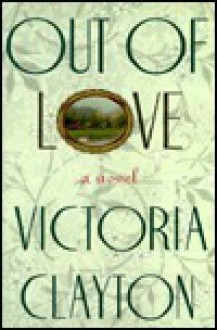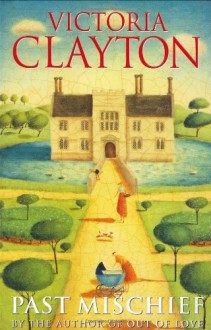
I first read Out of Love at university, curled up in my duvet with a packet of Pringles. Those were the days! Since then it's always been a go-to comfort read.
The story follows Daisy as she meets up with her old schoolfriend, Min, makes up the quarrel that led to 15 years' worth of estrangement, and goes to stay at Min's rambling pile in Yorkshire.
On the face of it Daisy's life is wonderful. She has a convenable career as an academic in Cambridge, an independent income and a fast car. But as she begins to assimilate herself into Min's family life, she realises there's something missing. Something that might well be Min's beloved husband, the gruff and enigmatic Robert.
A different writer might have turned this set-up into a suspense, but Clayton instead uses her premise to meditate on the nature of love, friendship and forgiveness.
The novel begins with Daisy's and Min's coincidental meeting at a college reunion, and then tells the story of their intense friendship and quarrel in flashback. I love the portrayal of childhood; the loneliness of Daisy's, and the loving household that grounded Min's. Daisy keeps Min, vague and disorganised, out of trouble; Min's generosity gives Daisy a taste of family. This dynamic is replayed in their later relationship, after they have met up again.
There are several things that make this novel for me but probably the single most important element is the cast of well-realised supporting characters. There are harsh schoolmistresses, priapic gardeners, hot tanned South African men, clean-skinned, floppy-haired Oxford academics, gossiping shopkeepers, pot-smoking teenagers, Wildean schoolmasters, and two nymphomaniac mothers of different social class. My favourite is Mrs Butter, the housekeeper Daisy finds for Min, who has a sad history and who ends up selling her prescription drugs to kids in the school playground - and who remains an intensely sympathetic character. She has her reasons.
I also adore the way Daisy sets about sorting out Min's house and family when Min burns her arm and asks Daisy to stay on a bit to help out so that she can finish the academic preface she is writing. List after list, task after task, from organising regular deliveries of dog food to cooking every meal (using Elizabeth David's French Provincial Cooking, of which I thoroughly approve) and rearranging furniture to bring the house back to something approaching its former state. As a fellow manager of human beings, I cheer Daisy's bossiness on with all my heart.
There are a few things I don't like about this book. Perhaps some of the minor characters are a little stereotypical, and the attitudes some of the characters display towards homosexuality are uncomfortable. The story's time period (1950s to perhaps early 1970s) may go some way towards explaining that. A vein of snobbishness runs through the book, with many of the characters lower down the social scale seen as silly, stupid, or dishonest. (this is true of more of Clayton's work, too.)
Overall, though, the charm of the book carries me through every time.

 Log in with Facebook
Log in with Facebook 






